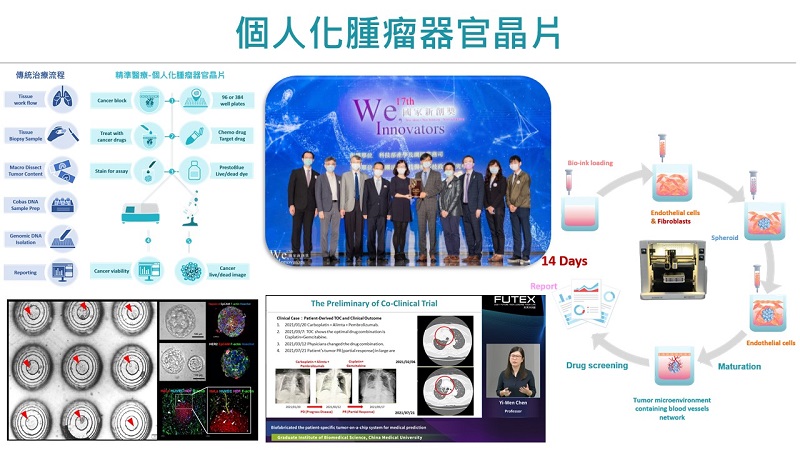
Patient-Derived Tumor Spheroid+ Chip, PDTS+ chip
2021-10-20
Source:Ever Young BioDimension
Cancer is listed as the top ten cause of death in Taiwan, amongst which lung cancer ranks first in the top ten cancers for both genders. In order to effectively treat and control cancer, many therapies have been developed to provide patients with more treatment possibilities; however, the treatment guidelines still depend wholly on the experiences of the physicians to choose the ideal approach for a specific patient. However, due to individual differences in patients such as unknown pathogenic and pharmacological mechanisms, most chemotherapeutic drugs in the clinical settings were more common than not failed to achieve the expected targets. In the recent decade, we have seen an increasing demand for personalized medicine and therapies especially in the field of oncology which had driven the entire research force to develop novel therapeutic methods for personalized treatment of cancers.
Therefore, the jointly developed Patient-Derived Tumor Spheroid+ Chip, PDTS+ chip of Ever Young BioDimension with x-Dimension Center for Medical Research and Translation in conjunction with the research team aims to provide personalized treatment options for an individual through directly evaluating drug efficacy on a patient’s tumor specimens. We had managed to replicate the in vitro tumor microenvironment for lung cancer which could be used for direct multiple drug testing, therefore allowing physicians to make informed and precise decisions based on the viability data collected.
The Patient-Derived Tumor Spheroid+ Chip technology has won multiple awards, including the 17th National Innovation Award in 2020, the Ministry of Science and Technology "Future Tech Awards" in 2021, and the 18th National Innovation Award in 2021. In the clinical settings, we have received positive feedbacks and confirmations from the clinical researchers involved.

The current clinical verification results of this drug screening chip product showed 86.7% sensitivity, with 80% specificity and 85% accuracy in diagnosing and evaluating treatment efficacies. In the future, we hoped to develop Tumor-On-A-Chip models for other types of cancer. In the future, the team will continue to develop breast cancer, colorectal cancer, pancreatic cancer, brain cancer, and rectal cancer-related product for both detection and evaluation of treatment options. It is expected that this technology will become a high-precision routine pre-clinical kit for physicians when the technology gradually matures. In addition, The Patient-Derived Tumor Spheroid+ Chip is expected to provide physicians with a precise medical platform that can realistically predict the efficacy of treatment at a reasonable development cost, therefore greatly impacting the current state and developmental guidelines of the pharmaceutical industry. Lastly, we hoped that our product could act as a platform to promote future product development and innovation for the other sectors.